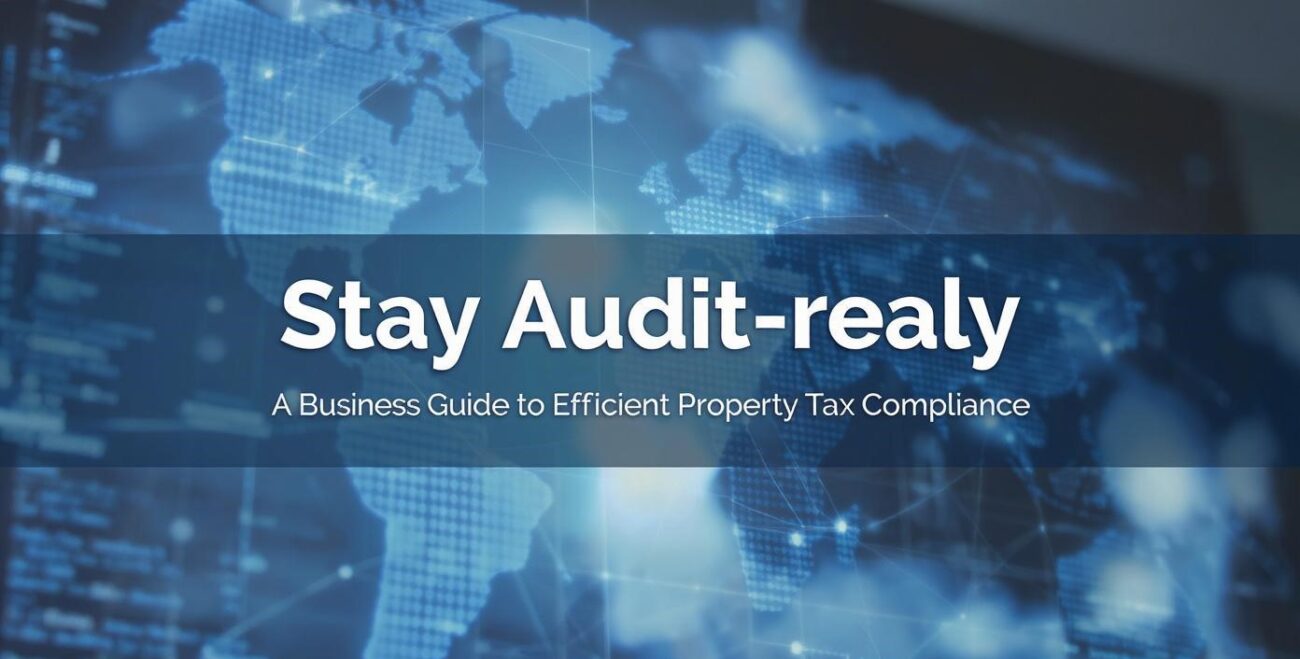Navigating property tax regulations has become increasingly complex for today’s enterprises. Local laws evolve frequently, and businesses are often caught unprepared. A Guide to Better PROPERTY TAX COMPLIANCE for Businesses is more than a resource—it is a strategic tool that empowers businesses to align with fiscal responsibilities while maintaining efficiency.
Being compliant is not just about paying taxes; it’s about managing assets, maintaining transparency, and preparing for audits. Better property tax compliance for businesses reduces financial risks, promotes better governance, and supports long-term sustainability.
Recognizing Common Pitfalls in Property Tax Compliance
Several businesses fall short due to operational and strategic missteps. These may include:
-
Inaccurate or outdated asset inventories
-
Misunderstanding jurisdictional tax codes
-
Missing exemption opportunities
-
Poor communication between departments
By understanding these weak points, organizations can implement A Guide to Better Property Tax Compliance for Businesses and avoid costly errors.
Key Areas to Strengthen for Better Compliance
For organizations seeking clarity and control over their property tax obligations, adopting best practices is crucial.
1. Perform In-Depth Asset Reviews
Asset verification is fundamental. Unrecorded or misclassified assets can lead to inflated tax bills. Businesses should routinely:
-
Match physical assets with recorded inventories
-
Evaluate depreciation schedules
-
Eliminate ghost assets from records
Regular auditing aligns your books with actual conditions, ensuring better property tax compliance for businesses.
2. Understand Jurisdictional Variations
Property tax rates and policies differ drastically by region. Businesses operating in multiple locations must:
-
Maintain a compliance map
-
Engage local advisors
-
Track rate changes and deadlines
This knowledge, reinforced by A Guide to Better Property Tax Compliance for Businesses, provides the foresight needed to avoid misfiling and missed deadlines.
3. Automate Compliance Tasks
Manual compliance processes are prone to error. Automation enables companies to:
-
Track tax due dates
-
Validate asset classifications
-
Generate accurate filings
Software tools aligned with better property tax compliance for businesses improve accuracy while reducing workloads.
4. Build a Unified Compliance Framework
When tax processes are siloed, compliance suffers. Building a cohesive framework involves:
-
Standardizing data entry procedures
-
Creating cross-functional communication channels
-
Implementing centralized reporting tools
This centralized approach supports data consistency and audit-readiness.
5. Partner With Regional Tax Experts
Internal teams may lack the capacity to manage complex tax scenarios. Tax consultants can:
-
Identify exemptions and credits
-
Represent businesses during disputes
-
Provide proactive audit support
As outlined in A Guide to Better Property Tax Compliance for Businesses, combining internal processes with external expertise leads to better outcomes.
6. Keep Audit Documentation Organized
Documentation is your shield during assessments. Businesses must:
-
Archive purchase histories and ownership proofs
-
Maintain correspondence with tax agencies
-
Keep clear audit trails
Better property tax compliance for businesses means preparing today for tomorrow’s reviews.
7. Monitor Property Reassessment Cycles
Valuations are not permanent. Businesses should regularly evaluate whether their assessments are justified. Tactics include:
-
Reviewing comparable property data
-
Engaging certified appraisers
-
Filing appeals promptly
This vigilance, recommended in A Guide to Better Property Tax Compliance for Businesses, can reduce overpayments.
8. Upskill Finance and Operations Teams
The best compliance systems are ineffective without informed personnel. Businesses must:
-
Offer quarterly training
-
Share tax calendars
-
Educate teams on classification nuances
Better property tax compliance for businesses starts with cross-functional awareness.
9. Implement Risk and Exposure Reviews
Proactive businesses develop risk plans to avoid future penalties. This includes:
-
Internal control evaluations
-
Forecasting changes in tax liability
-
Regular gap analysis
A Guide to Better Property Tax Compliance for Businesses underscores the need to prepare before challenges arise.
10. Evaluate Systems Annually
Compliance is dynamic. Conducting yearly assessments helps organizations:
-
Update reporting standards
-
Adjust for new regulations
-
Identify automation needs
These assessments ensure continuity in achieving better property tax compliance for businesses.
Strategic Gains from Strong Compliance
When businesses prioritize tax compliance:
-
Financial performance stabilizes
-
External audits are less stressful
-
Planning accuracy increases
-
Legal risks decline
-
Stakeholder trust grows
Read Full Article : https://businessinfopro.com/a-guide-to-better-property-tax-compliance-for-businesses/
About Us: Businessinfopro is a trusted platform delivering insightful, up-to-date content on business innovation, digital transformation, and enterprise technology trends. We empower decision-makers, professionals, and industry leaders with expertly curated articles, strategic analyses, and real-world success stories across sectors. From marketing and operations to AI, cloud, and automation, our mission is to decode complexity and spotlight opportunities driving modern business growth. At Businessinfopro, we go beyond news—we provide perspective, helping businesses stay agile, informed, and competitive in a rapidly evolving digital landscape. Whether you’re a startup or a Fortune 500 company, our insights are designed to fuel smarter strategies and meaningful outcomes.
